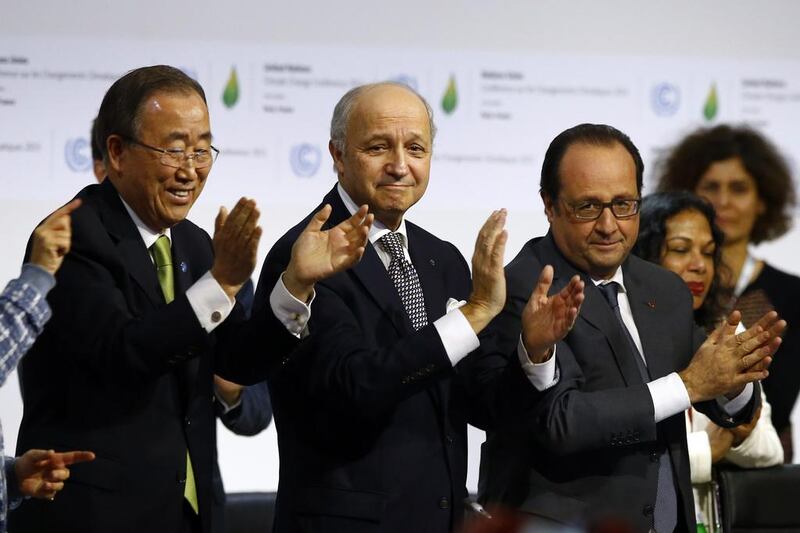Seventy years ago, the United Nations was created from the ashes of the Second World War. Seven decades later, in Paris, nations have united in the face of another threat – the threat to life due to a rapidly warming planet.
Governments have ushered in a new era of global cooperation on climate change.
The Paris agreement is a triumph for people, the environment and for multilateralism. It is a health insurance policy for the planet. For the first time, every country in the world has pledged to curb their emissions, strengthen resilience and act to address climate change.
Together, countries have agreed that, in minimising risks of climate change, the national interest is best served by pursuing the common good. I believe it is an example we could follow across the political agenda.
The victory in Paris caps a remarkable year. From the historic sustainable development summit in New York to the climate conference in Paris, this has been a year in which the UN has proved its ability to deliver hope and healing to the world.
Since my first days in office, I have called climate change the defining challenge of our time. I have spoken with nearly every world leader about the threat it poses to our economies, our security and our survival. I have visited every continent and met people living on the climate front-lines. I have been inspired by the solutions that will make our world safer and more prosperous.
I have participated in every UN climate conference. The three summits I convened mobilised political will and catalysed innovative action by governments, business and civil society.
What was once unthinkable is now unstoppable. The private sector is increasingly investing in a low-emissions future. The solutions are affordable and available and many more are poised to come.
The Paris agreement delivered on all the key points I called for. Markets now have the clear signal they need to scale up investments that will generate low-emissions and climate-resilient development. All countries have agreed to work to limit the global temperature rise. This is especially important for the nations of Africa, small island developing states and least developed countries.
In Paris, countries agreed on a long-term goal to cap global greenhouse gas emissions as soon as possible in the second half of the century: 188 countries have now submitted their intended nationally determined contributions, which show what they are prepared to do to reduce emissions and build climate resilience.
Currently, these targets have already significantly bent the emissions curve downwards. But, collectively, they still leave us with an unacceptably dangerous temperature rise. That is why countries in Paris pledged that they will review their national climate plans every five years, beginning in 2018. This will allow them to increase ambition in line with what science demands.
The Paris agreement also ensures sufficient, balanced adaptation and mitigation support for developing countries, especially the poorest and most vulnerable. And it will help to scale up global efforts to address and minimise loss and damage from climate change.
Governments have agreed to binding, robust, transparent rules of the road to ensure that all countries do what they have said they would do. Developed countries have agreed to lead in mobilising finance and to scale up technology support and capacity building. And developing countries have assumed increasing responsibility to address climate change in line with their capabilities.
In acknowledging this historic achievement, it would be remiss if I did not recognise the leadership and vision of the business community and civil society. They have highlighted both the stakes and the solutions. I salute them for their outstanding display of climate citizenship.
Now, with the Paris agreement in place, our thoughts must immediately turn to implementation. By addressing climate change we are advancing the 2030 agenda for sustainable development. The Paris agreement has positive implications for all the sustainable development goals. We are poised to enter a new era of opportunity.
As governments, business and civil society begin the mammoth project of tackling climate change and realising the sustainable development goals, the UN will assist member states and society at large at every stage. As a first step in implementing the Paris agreement, I will convene a high-level signing ceremony in New York next year.
I will invite world leaders to come to help keep and increase momentum. By working together, we can achieve our shared objective to end poverty, strengthen peace and ensure a life of dignity and opportunity for all.
Ban Ki-moon is secretary-general of the United Nations





